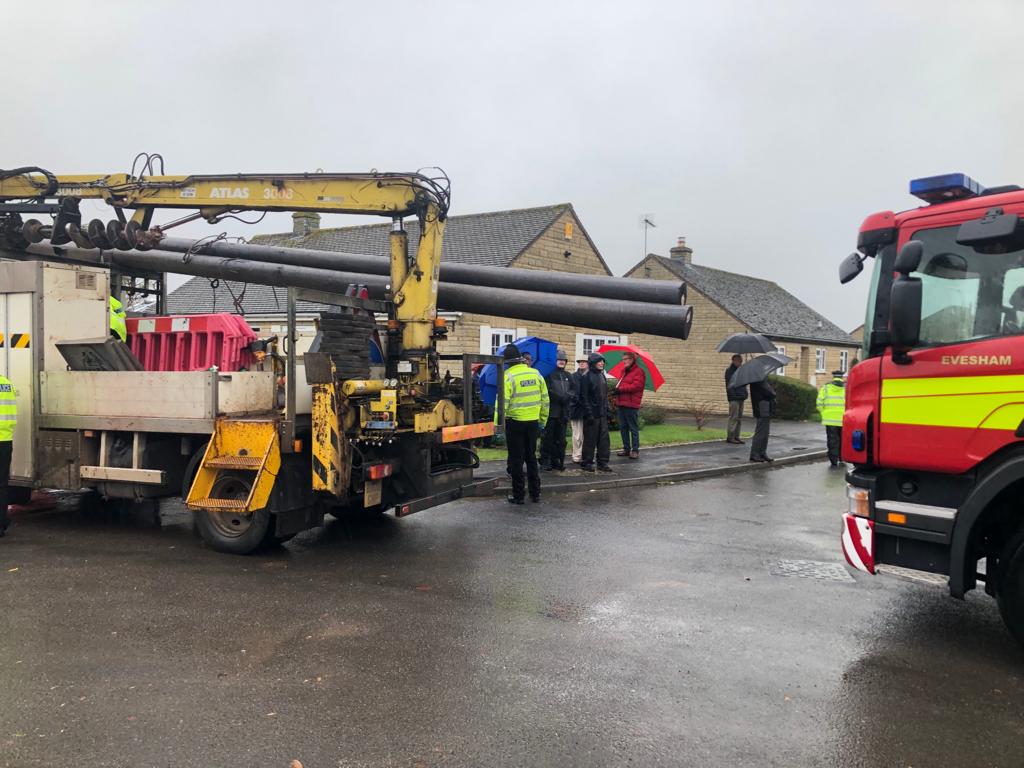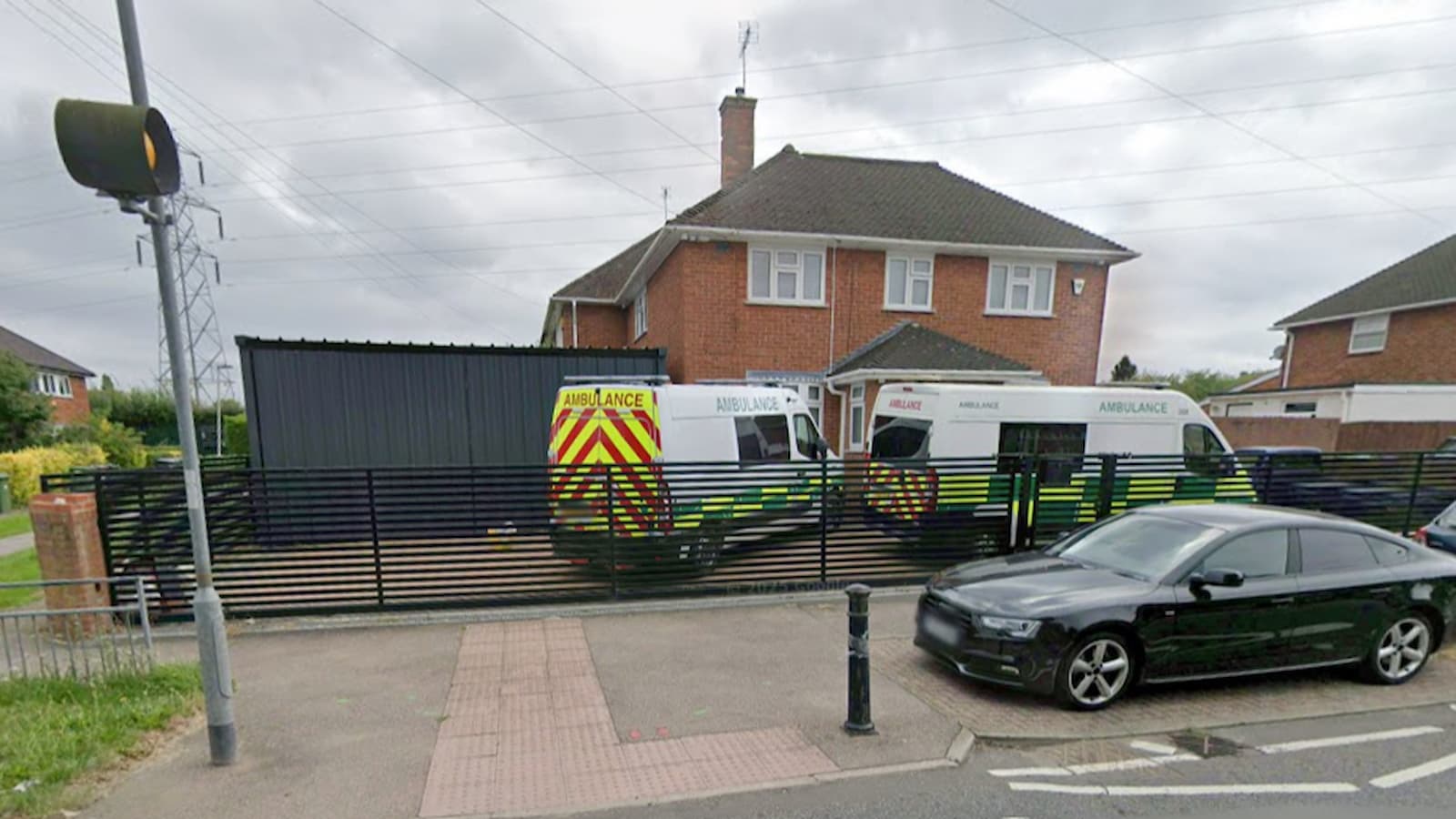MPs debate whether telegraph poles should be subject to tighter planning controls
It is currently being proposed that the installation of telegraph poles should be made more difficult due to the issue numerous householders have faced

Bring your dream home to life with expert advice, how to guides and design inspiration. Sign up for our newsletter and get two free tickets to a Homebuilding & Renovating Show near you.
You are now subscribed
Your newsletter sign-up was successful
MPs are currently debating new regulations surrounding the installation of telegraph poles in the UK, as concerns grow over their impact on local communities.
Under the current rules, broadband providers can install these poles without full planning permission, which has led to widespread complaints from residents about their placement and appearance.
This debate aims to address these issues by potentially tightening the regulations and ensuring that local planning authorities and residents are more involved in the decision-making process.
Current planning rules around telegraph poles
In the UK, broadband providers generally can install telegraph poles under permitted development rights due to the Electronic Communications Code and the Town and Country Planning Order 2015.
The rules only require operators to give the local planning authority (LPA) 28 days' notice before installation, and LPAs have limited ability to object. While they can suggest alternative placements, operators are not legally bound to follow those recommendations.
The Electronic Communications Code also encourages the sharing of existing infrastructure, such as using existing ducts and poles where possible, to minimise disruption and impact on the community.
New poles should only be installed if underground alternatives are impractical, and companies are expected to engage with local communities to ensure proper placement without harming the visual appeal or causing obstructions.
Bring your dream home to life with expert advice, how to guides and design inspiration. Sign up for our newsletter and get two free tickets to a Homebuilding & Renovating Show near you.
'Much better community engagement is needed over telegraph pole installation'

New guidelines are being considered to improve community involvement and the siting process for such infrastructure.
In a recent debate in the House of Commons over the installation of telegraph poles in Bolton, MP Phil Brickell raised concerns about the unsightly and disruptive masts being erected without warning.
The poles, installed by companies like IX Wireless, are permitted under current development laws, which allow installation without planning permission. This has sparked protests from residents, including one who physically blocked the installation outside his home.
Brickell criticised the poles as "inappropriate eyesores" and called for stronger regulations. He welcomed a letter from Sir Chris Bryant, Minister for Data Protection and Telecoms, which urged telecom operators to share existing infrastructure and consider underground installation where possible.
The Minister also acknowledged the public’s strong objections and did not rule out changing laws if companies continue to disregard community concerns.
Despite some actions, such as the removal of a pole near a historic building, the issue remains contentious. Brickell emphasised his commitment to safeguarding constituents and pushing for stricter regulations to control the placement of telegraph poles.
Laurence Turner, MP for Birmingham Northfield, also stated, "Much better community engagement is needed over telegraph pole installation," responding to concerns from residents about inadequate consultation during the broadband rollout.
Debate comes after Ofcom investigation into installations
The debate has come after Ofcom initiated an investigation into broadband provider BRSK in May 2024 after receiving a complaint suggesting that the company may have violated regulations during the installation of telecommunications poles in Birmingham.
Ofcom stated that it “takes compliance with the Regulations very seriously,” highlighting that “meaningfully engaging with local planning authorities before installing network apparatus is an important element of the regulatory framework”.
The regulatory body noted that such engagement allows planning authorities to “bring relevant local considerations to the Code Operator’s attention” and set appropriate conditions for installations.
Ofcom warned that “failure to follow the process set by the Regulations can therefore increase the risk of apparatus adversely impacting on the visual amenity of properties and posing hazards.”
Laurence Turner welcomed Ofcom's ongoing investigation into BRSK's compliance with planning regulations in south Birmingham but noted that current legislation is currently being considered by the government to toughen telegraph pole installation.

News Editor Joseph has previously written for Today’s Media and Chambers & Partners, focusing on news for conveyancers and industry professionals. Joseph has just started his own self build project, building his own home on his family’s farm with planning permission for a timber frame, three-bedroom house in a one-acre field. The foundation work has already begun and he hopes to have the home built in the next year. Prior to this he renovated his family's home as well as doing several DIY projects, including installing a shower, building sheds, and livestock fences and shelters for the farm’s animals. Outside of homebuilding, Joseph loves rugby and has written for Rugby World, the world’s largest rugby magazine.
